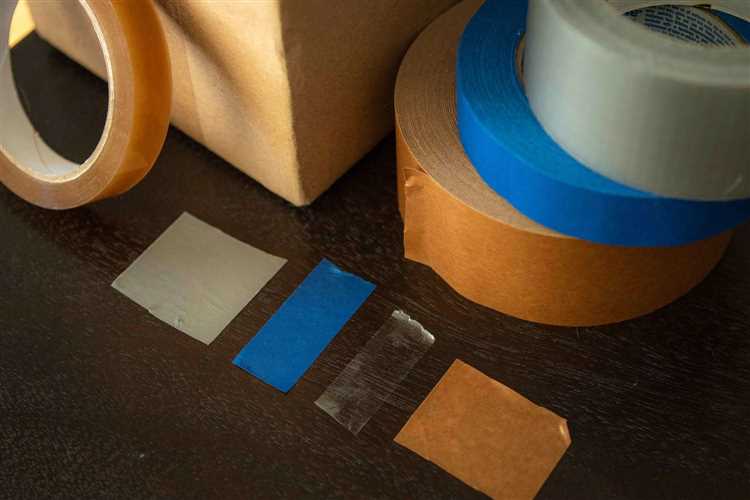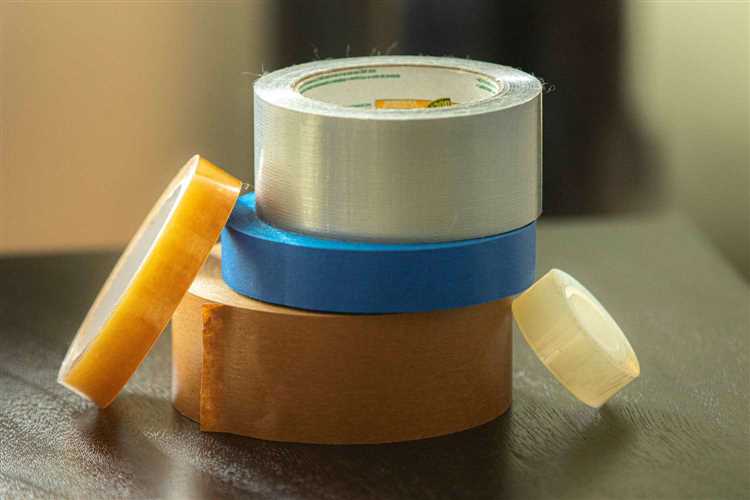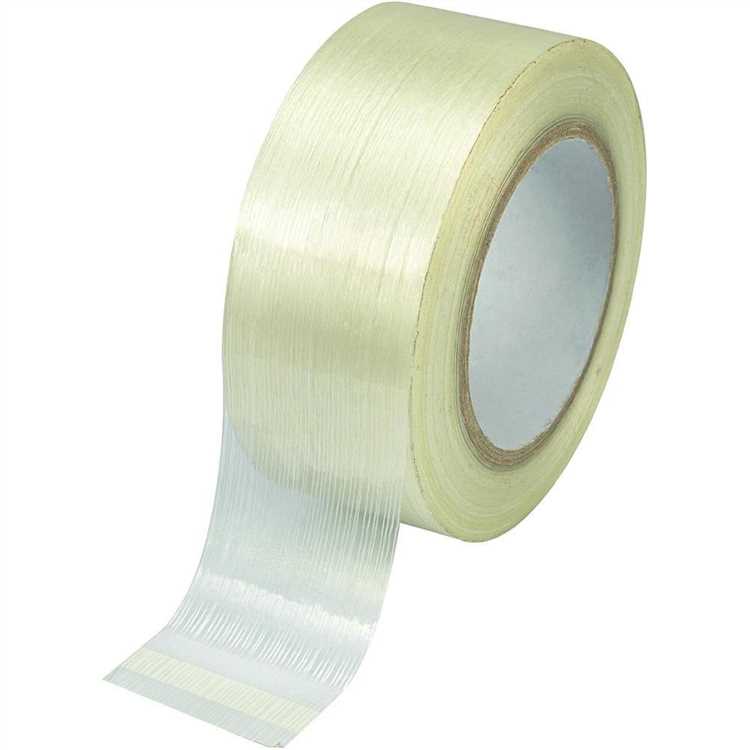
PVC tape, also known as vinyl tape, is a widely used adhesive tape that is known for its durability and versatility. But what happens to all the PVC tape that is used and discarded? Is recycling PVC tape possible, or does it end up in landfills?
PVC, or polyvinyl chloride, is a type of plastic that is commonly used in a variety of products, including tape. While PVC tape is known for its strength and ability to withstand different conditions, its disposal can pose environmental concerns. PVC is not biodegradable and can release toxic chemicals when incinerated or left to decompose in landfills.
Given the potential harm that PVC tape can cause to the environment, the question of whether it can be recycled is of great importance. The good news is that recycling PVC tape is indeed possible. However, the process is not as straightforward as recycling other types of plastic.
One challenge in recycling PVC tape is separating the tape from its adhesive backing. The adhesive, often made from rubber or acrylic, can contaminate the recycled material if not properly removed. Additionally, the adhesive residue can clog recycling equipment, making the recycling process more difficult and less efficient.
- Benefits of Recycling PVC Tape
- 1. Environmental benefits
- 2. Economic benefits
- Reducing Environmental Impact
- Resource Conservation
- Landfill Space
- Raw Material Extraction
- Energy Savings
- Promoting a Circular Economy
- Recycling Initiatives and Programs
- Q&A:
- Is recycling PVC tape beneficial for the environment?
- Can PVC tape be recycled?
- What are the challenges in recycling PVC tape?
- What are the alternatives to recycling PVC tape?
Benefits of Recycling PVC Tape
Recycling PVC tape has several benefits, both for the environment and for businesses. Here are the key advantages of recycling PVC tape:
1. Environmental benefits
By recycling PVC tape, we can significantly reduce the amount of waste that ends up in landfills. PVC tape is made from polyvinyl chloride, a type of plastic that takes hundreds of years to degrade. When PVC tape is recycled, it is diverted from landfills, reducing the need for additional landfill space and minimizing the environmental impact.
Additionally, recycling PVC tape helps conserve natural resources. By reusing the materials from discarded tape, we can reduce the demand for new virgin materials. This helps to conserve energy and reduce the extraction of raw materials, such as oil and natural gas, which are used in the production of PVC tape.
2. Economic benefits

Recycling PVC tape can also bring economic benefits to businesses. By implementing a recycling program, companies can reduce waste disposal costs by diverting PVC tape from landfills. This can lead to significant cost savings, especially for businesses that produce large amounts of waste tape on a regular basis.
Furthermore, recycling PVC tape can help businesses enhance their sustainability credentials. Many customers and clients are increasingly concerned about the environmental impact of the products they purchase. By demonstrating a commitment to recycling, businesses can attract eco-conscious customers and differentiate themselves from competitors.
In conclusion, recycling PVC tape has numerous benefits, including environmental conservation, resource conservation, cost savings, and improved corporate sustainability. It is an important practice that can make a positive impact on both the environment and the bottom line.
Reducing Environmental Impact
Reducing environmental impact is a key goal when it comes to recycling PVC tape. PVC tape is a commonly used material in various industries, but its disposal can have significant negative consequences for the environment.
One way to reduce the environmental impact of PVC tape is to focus on product design. By designing PVC tape with recyclability in mind, manufacturers can make it easier to recycle and minimize waste. This can be achieved by using materials that are readily recyclable or by developing innovative recycling technologies specifically for PVC tape.
Another approach is to increase awareness and educate consumers about the importance of recycling PVC tape. Many people may not be aware that PVC tape can be recycled and the impact it can have on the environment if not properly disposed of. By promoting recycling programs and providing clear information on how to recycle PVC tape, more people can be encouraged to take part in the recycling process.
In addition, collaboration between industries, recycling facilities, and government organizations is essential in reducing the environmental impact of PVC tape. Cooperation in establishing efficient collection systems, implementing recycling technologies, and setting up proper disposal facilities can help ensure that PVC tape is recycled effectively and safely.
Apart from recycling, it is also important to explore alternative materials to replace PVC tape. Research and development efforts can focus on finding sustainable and environmentally friendly alternatives that can provide the same functionality as PVC tape without the negative environmental implications.
Ultimately, reducing the environmental impact of PVC tape requires a coordinated effort from manufacturers, consumers, and government entities. By prioritizing recyclability, raising awareness, and promoting collaboration, we can move towards a more sustainable future where PVC tape recycling becomes the norm rather than the exception.
Resource Conservation
PVC tape recycling plays a significant role in resource conservation. By recycling PVC tape, we can reduce the demand for new raw materials and conserve valuable resources. PVC, or polyvinyl chloride, is a synthetic plastic material that is widely used for various applications, including tape production.
One of the key benefits of recycling PVC tape is the conservation of energy. The production of new PVC tape requires a significant amount of energy, from the extraction of raw materials to the manufacturing process. By recycling PVC tape, we can minimize the energy consumption associated with producing new tape.
In addition to energy conservation, recycling PVC tape also helps in conserving other important resources, such as water. The manufacturing process of PVC tape involves the use of water for various purposes, including cooling and cleaning. By recycling PVC tape, we can reduce the overall water consumption associated with its production.
Landfill Space

Another important aspect of resource conservation through PVC tape recycling is the reduction of landfill space. PVC tape that is not recycled often ends up in landfills, taking up valuable space and contributing to environmental pollution. By recycling PVC tape, we can reduce the amount of waste that goes to landfills and help conserve precious landfill space.
Raw Material Extraction
Raw material extraction for PVC tape production can have negative environmental impacts, such as deforestation or damage to natural habitats. By recycling PVC tape, we can decrease the demand for new raw materials, leading to a reduction in these environmental impacts. Furthermore, recycling PVC tape helps in conserving non-renewable resources, such as fossil fuels, that are used in the production of new PVC tape.
In conclusion, PVC tape recycling is vital for resource conservation. It helps in conserving energy, water, landfill space, and raw materials, contributing to a more sustainable and environmentally friendly approach to tape production. By recycling PVC tape, we can make a significant positive impact on our environment and reduce our overall resource consumption.
Energy Savings
Recycling PVC tape offers significant energy savings compared to producing new tape from virgin materials. The recycling process requires much less energy than the extraction and production of PVC resin, which is the raw material used to make tape. By recycling PVC tape, we can reduce the carbon emissions associated with manufacturing new tape.
Additionally, the recycling process itself can be energy-efficient. Many recycling facilities use advanced technologies that consume less energy and produce minimal waste. These facilities optimize the use of energy and resources, contributing to a more sustainable and eco-friendly approach to PVC tape production.
Moreover, reusing PVC tape also saves energy. Rather than disposing of used tape and using new tape for every application, reusing PVC tape reduces the need for new production. This practice further reduces energy consumption and environmental impact.
Considering the energy savings achieved through recycling and reusing PVC tape, individuals, businesses, and industries can actively contribute to conserving energy resources and reducing carbon emissions. Recycling and reusing PVC tape are sustainable alternatives that promote a more energy-efficient and environmentally friendly approach.
In conclusion, recycling PVC tape not only diverts waste from landfills but also helps conserve energy and reduce carbon emissions. By choosing to recycle and reuse PVC tape, we can contribute to a more sustainable future.
Promoting a Circular Economy

A circular economy is a model that aims to eliminate waste and keep resources in use for as long as possible. It is a system that focuses on reusing, recycling, and repurposing materials rather than disposing of them after a single use. By promoting a circular economy, we can reduce the amount of waste generated and decrease our environmental footprint.
When it comes to materials such as PVC tape, promoting a circular economy means finding ways to recycle and reuse this material instead of sending it to landfills. While recycling PVC tape can be challenging due to the presence of adhesives and other contaminants, advances in technology and innovative processes are making it increasingly possible.
One approach to recycling PVC tape is to separate the tape from the adhesive. This can be done through mechanical or chemical processes, with the goal of recovering both the tape and the adhesive in a usable form. The recovered materials can then be repurposed for various applications, reducing the need for virgin materials and preventing waste.
Another way to promote a circular economy for PVC tape is to encourage manufacturers to design products with recycling in mind. By creating tapes that are easier to separate from their adhesives, manufacturers can make the recycling process more efficient and cost-effective. Additionally, using recycled PVC tape in the production of new tapes can help close the loop and create a sustainable supply chain.
Education and awareness play a vital role in promoting a circular economy. By informing consumers about the importance of recycling PVC tape and providing them with convenient recycling options, we can encourage more people to participate in the process. Governments, businesses, and organizations can also play a part by implementing policies and initiatives that support and incentivize circular practices.
Overall, promoting a circular economy for PVC tape is a collective effort that requires collaboration between manufacturers, consumers, and other stakeholders. By embracing recycling, reusing, and repurposing, we can reduce waste, conserve resources, and ultimately create a more sustainable future.
Recycling Initiatives and Programs
Recycling PVC tape has become an important focus for many organizations and governments around the world. Numerous recycling initiatives and programs have been established to promote and facilitate the recycling of PVC tape, aiming to reduce its environmental impact and ensure its proper disposal.
One such initiative is the establishment of recycling centers specifically designed to handle PVC tape waste. These centers collect and process used PVC tape to ensure that it is properly recycled and does not end up in landfills or incinerators. The collected tape is typically sorted, cleaned, and processed into materials that can be used to create new products or materials.
In addition to recycling centers, various recycling programs have been implemented to encourage individuals and businesses to recycle their PVC tape. These programs often involve the distribution of recycling bins or containers specifically designated for PVC tape waste. They also educate and raise awareness about the importance of recycling and the environmental benefits it brings.
Some recycling initiatives and programs have also partnered with manufacturers and retailers to promote the use of recyclable alternatives to PVC tape. These alternatives, such as paper-based or biodegradable tapes, are designed to minimize the environmental impact of packaging materials and facilitate their recycling.
Furthermore, government regulations and policies have played a significant role in promoting the recycling of PVC tape. Many countries have implemented waste management laws that require businesses and individuals to properly handle and dispose of PVC tape waste. These regulations often include provisions for recycling and incentivize proper waste management practices.
Overall, recycling initiatives and programs have made significant progress in promoting the recycling of PVC tape. By raising awareness, providing convenient recycling options, and promoting the use of alternative materials, these initiatives are helping to reduce the environmental impact associated with PVC tape waste and create a more sustainable future.
Q&A:
Is recycling PVC tape beneficial for the environment?
Yes, recycling PVC tape is beneficial for the environment. By recycling PVC tape, we can reduce the amount of waste in landfills and prevent harmful substances from leaching into the soil and water.
Can PVC tape be recycled?
Yes, PVC tape can be recycled. However, it is important to note that not all recycling facilities accept PVC tape, so it is recommended to check with your local recycling center for specific guidelines.
What are the challenges in recycling PVC tape?
There are several challenges in recycling PVC tape. One of the main challenges is the presence of adhesive residue, which can contaminate the recycling process. Additionally, PVC tape is often made with different additives and mixed materials, making it difficult to separate and recycle.
What are the alternatives to recycling PVC tape?
Instead of recycling PVC tape, one alternative is to reuse it whenever possible. By reusing PVC tape, you can extend its lifespan and reduce the need for new tape. Another alternative is to opt for biodegradable or compostable tape, which has a lower environmental impact.